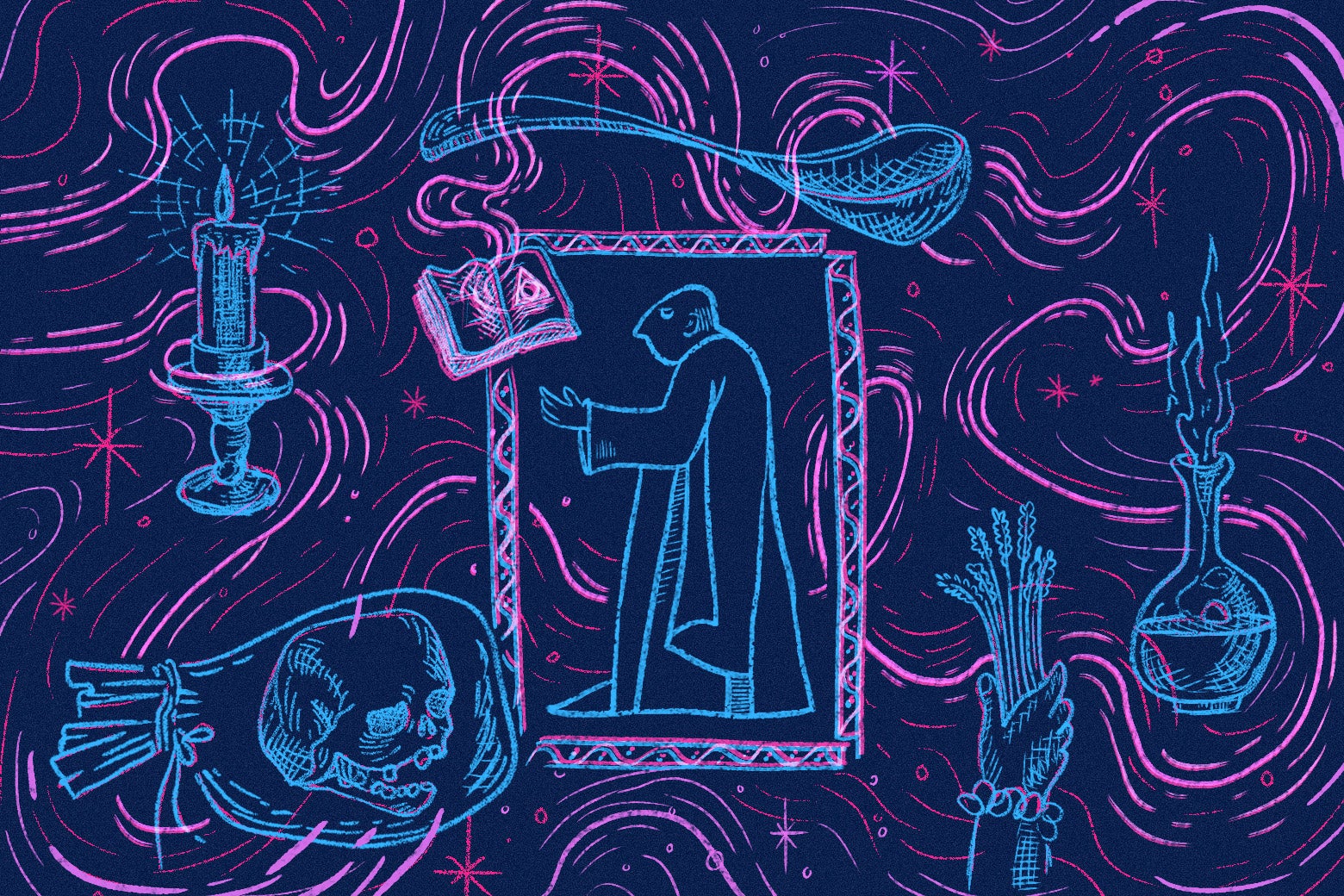Magic in Everyday Renaissance Europe
Laura Miller at Slate


In 1637, a Londoner named Mabel Gray lost her spoons. After looking everywhere, she set off to consult a wizard. That wizard directed her to a second, who sent her to a third, and she wound up taking a lengthy trek around the city, paying for ferries across the Thames and tromping through livestock yards and sketchy neighborhoods. According to Tabitha Stanmore—who opens her charming book Cunning Folk: Life in the Era of Practical Magic with this account—the whole process would have cost Mabel the equivalent of a skilled tradesman’s pay for a week. And as much as Mabel’s quest sounds like the premise of a fairy tale, Stanmore insists that there was nothing especially unusual about it.
Cunning Folk is packed with anecdotes about “service magicians”—people who offered a range of everyday magical help for a fee—in late medieval and early modern Europe (roughly the 14th to late 17th centuries). Stanmore’s sources are court records from the time, which provide fascinating windows into what people fought about, and therefore what they cared about, during the Middle Ages, even if the piquant little stories they tell don’t always come with a satisfying ending. Did Mabel get her spoons back? We’ll never know.
Read the rest


